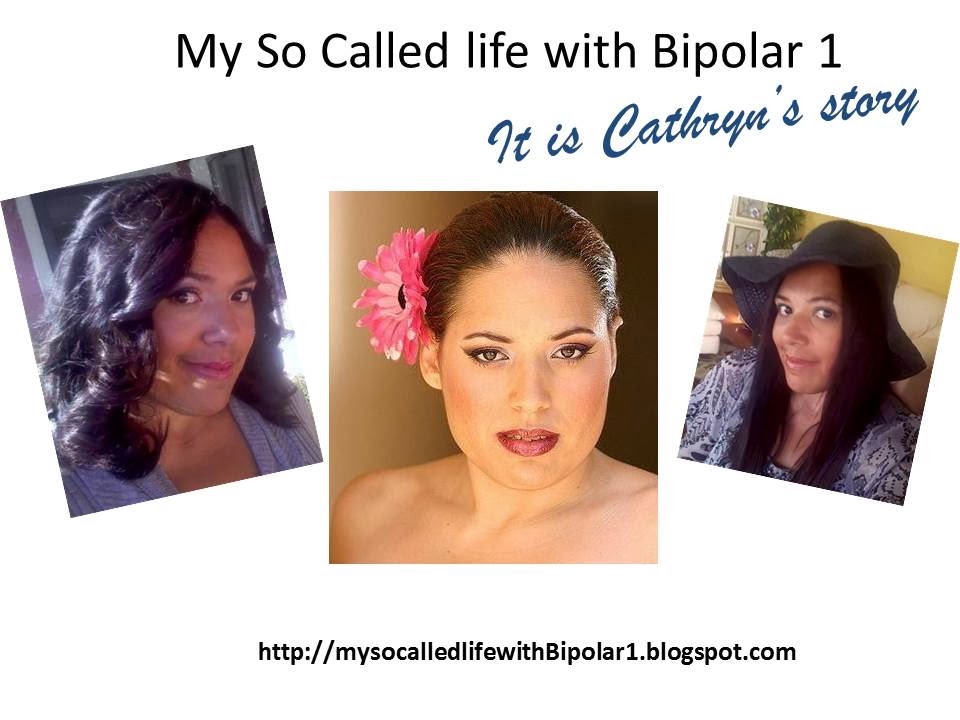I was interviewed by Julia with Social Work Helper. Check out the interview right here:http://www.socialworkhelper.com/2013/11/12/recovery-mental-illness-interview-cathryn-murray/
Also check out www.beutifulmagazine.com
The latest magazine is here: http://issuu.com/beutiful/docs/beutiful_-_issue_4
Read my article on Stigma of a Mental Illness
How I was diagnosed with Bipolar? I simply went to a few churches that did not work for me. Went to a church that was more conservative and then went to a Unitarian unversalist church. That church is not for me. It seemed cool at first, until I woke up and realized the truth. I believe in Jesus. I also was reading several books by Walter Martin. He talks a lot about cults in religions. I believe in Cults, because there are many ways that just don't connect to GOD. The bible warns of false teachers. We are to be aware of savage wolves that enter our churches and take away people. There is probably a better way to write this, but I am only writing things in my own words. I did not hear voices, but I felt like God was trying to warn me of things. I kept writing letters and really scared of things that I thought was hurting me. One morning before I was hospitalized I ran to a nearby church and screamed it is a cult. I felt something was driving me to... do this. I ran to the police department and banged on the door. I realized the door was not open and I had to walk to the front door. I entered the Police Department and I was saying things like it is a cult and the church around the corner is a cult. I remember the police coming out and then I was sent to a hospital. I did leave that hospital, but things kept happening. I was sent to a hospital in Martinez and I walked out of the place. I was barefoot and needed clothes. I walked down Alhambra Avenue in Martinez, until I found a laundry mat. Finding some clothes I realized I needed a ride back to Concord. I remember meeting a kind lady at Safeway and she gave me a ride back to Concord. I think I told her a story that my boyfriend left me. It worked, but I still felt something strange happening to me. I ended up walking down Monument Blvd and I realized that the safest place was Park regency in Walnut Creek. I used to live there and I thought I could walk there. I felt like something was telling me things. I knew I had to strip down and pull off my hair, because I thought I was being reborn. I was not harming myself, but I felt like something was happening to me. I felt like if I did this I was going to be reborn Actually I felt like I was becoming like Jesus. I was hospitalized after that incident and sent to Berkeley. My life changed right after that. I was now in the Mental Health world.
How I was diagnosed with Bipolar? I simply went to a few churches that did not work for me. Went to a church that was more conservative and then went to a Unitarian unversalist church. That church is not for me. It seemed cool at first, until I woke up and realized the truth. I believe in Jesus. I also was reading several books by Walter Martin. He talks a lot about cults in religions. I believe in Cults, because there are many ways that just don't connect to GOD. The bible warns of false teachers. We are to be aware of savage wolves that enter our churches and take away people. There is probably a better way to write this, but I am only writing things in my own words. I did not hear voices, but I felt like God was trying to warn me of things. I kept writing letters and really scared of things that I thought was hurting me. One morning before I was hospitalized I ran to a nearby church and screamed it is a cult. I felt something was driving me to... do this. I ran to the police department and banged on the door. I realized the door was not open and I had to walk to the front door. I entered the Police Department and I was saying things like it is a cult and the church around the corner is a cult. I remember the police coming out and then I was sent to a hospital. I did leave that hospital, but things kept happening. I was sent to a hospital in Martinez and I walked out of the place. I was barefoot and needed clothes. I walked down Alhambra Avenue in Martinez, until I found a laundry mat. Finding some clothes I realized I needed a ride back to Concord. I remember meeting a kind lady at Safeway and she gave me a ride back to Concord. I think I told her a story that my boyfriend left me. It worked, but I still felt something strange happening to me. I ended up walking down Monument Blvd and I realized that the safest place was Park regency in Walnut Creek. I used to live there and I thought I could walk there. I felt like something was telling me things. I knew I had to strip down and pull off my hair, because I thought I was being reborn. I was not harming myself, but I felt like something was happening to me. I felt like if I did this I was going to be reborn Actually I felt like I was becoming like Jesus. I was hospitalized after that incident and sent to Berkeley. My life changed right after that. I was now in the Mental Health world.





 Suddenly, we all have a colleague who is prescribing Trileptal (oxcarbazepine) for bipolar disorder, and who is claiming to have fabulous success.
Suddenly, we all have a colleague who is prescribing Trileptal (oxcarbazepine) for bipolar disorder, and who is claiming to have fabulous success.